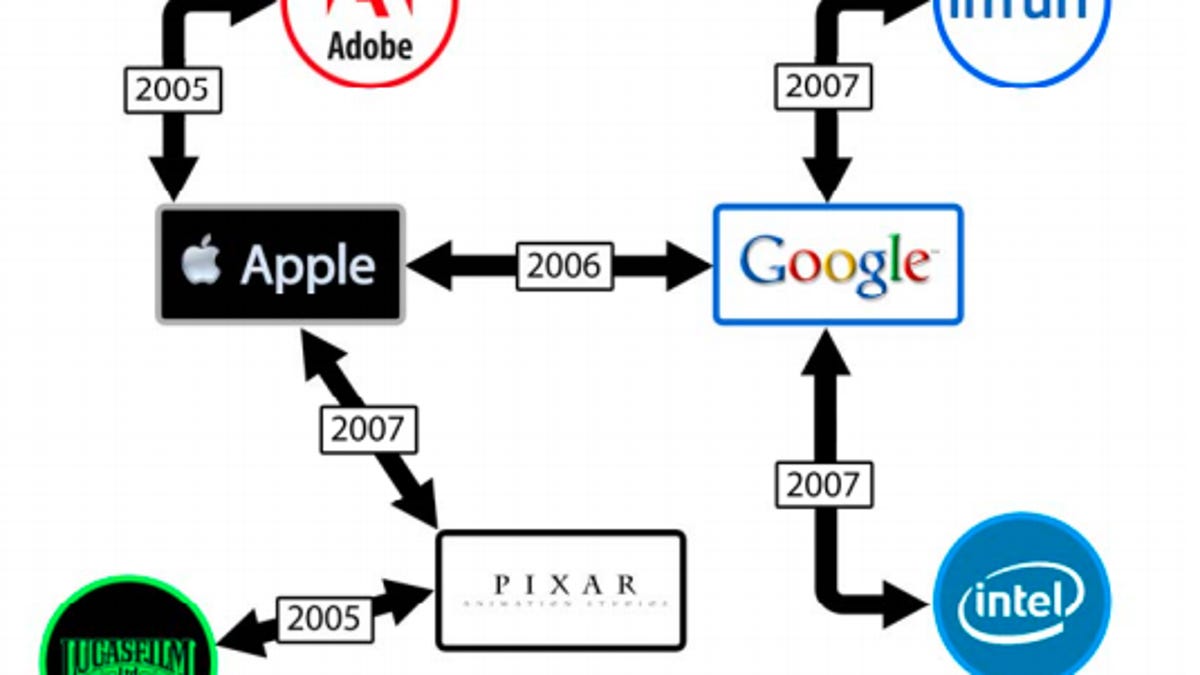Judge OKs class action wage suit against Apple, others
The case -- which accuses tech giants like Apple, Google, Intel, and others of conspiring to fix wages and agreeing not to poach employees -- moves forward.

A federal judge has given the green light on a class action suit in California that accuses tech juggernauts of conspiring to eliminate the competition for employees by fixing wages and agreeing not to actively recruit from each other.
US District Court Judge Lucy H. Koh granted the plaintiffs' motion late Thursday night to certify the lawsuit against Adobe, Apple, Google, Intel, Intuit, Lucasfilm, and Pixar, according to a court document. The plaintiffs, former employees of the named companies, accuse the companies of carrying out this "interconnected web" of agreements between 2005 and 2009.
"We have always actively and aggressively recruited top talent," said a Google spokeswoman in response to CNET.
Adobe, Apple, and Intel declined to comment. CNET has contacted the other companies involved in the suit and we'll update if we hear back.
The companies tried to argue that it wouldn't be fair to hear the case as a class action suit because salaries and other compensation vary from one employee to another and the evidence presented by the plaintiffs is "unpersuasive."
Koh disagreed and wrote, "Defendants cannot rebut the voluminous documentary evidence from Defendants' internal files and the expert reports that rely on this documentary evidence."
The partially redacted court document gave some examples to illustrate what effect these companies have on the overall job market. One example included Google's reaction to Facebook cold-calling its engineers.
Google's approach involved asking its competition to stop as an option, in addition to considering giving employees an incentive to stay or launching an "aggressive campaign" to go after Facebook's employees in response.
When then Google Recruiting Director Arnnon Geshuri found out that Facebook was cold-calling Google engineers in March 2008, Geshuri's first response was to call Facebook COO Sheryl Sandberg and ask her to stop and establish "a mutual 'Do Not Call' agreement," according to the court document.
As the competition heated up, Google Advisor Bill Campbell, who is also chairman of Intuit's board of directors and co-lead director of Apple's board, respond to an e-mail about Facebook's recruiting efforts with, "Who should contact Sheryl [Sandberg] (or [Facebook founder] Mark [Zuckerberg]) to get a cease fire? We have to get a truce."
Facebook, which is not involved in the case, didn't stop and continued to poach employees. This set off a chain reaction. Google ultimately increased its salaries by 10 percent and added an immediate cash bonus of $1,000. It subsequently forced Apple to pay its employees more as well.
The attorney representing the plaintiffs, Kelly Dermody of Lieff Cabraser Heimann & Bernstein, LLP, was, not surprisingly, pleased about the case moving forward. "We appreciate the Court's careful and comprehensive review of the record and look forward to seeking justice for our clients at trial," Dermody said in a statement.
Update, 1:26 p.m. PT: Adds comment from Google. And at 2:00 p.m. PT: Adds Adobe declining to comment.

